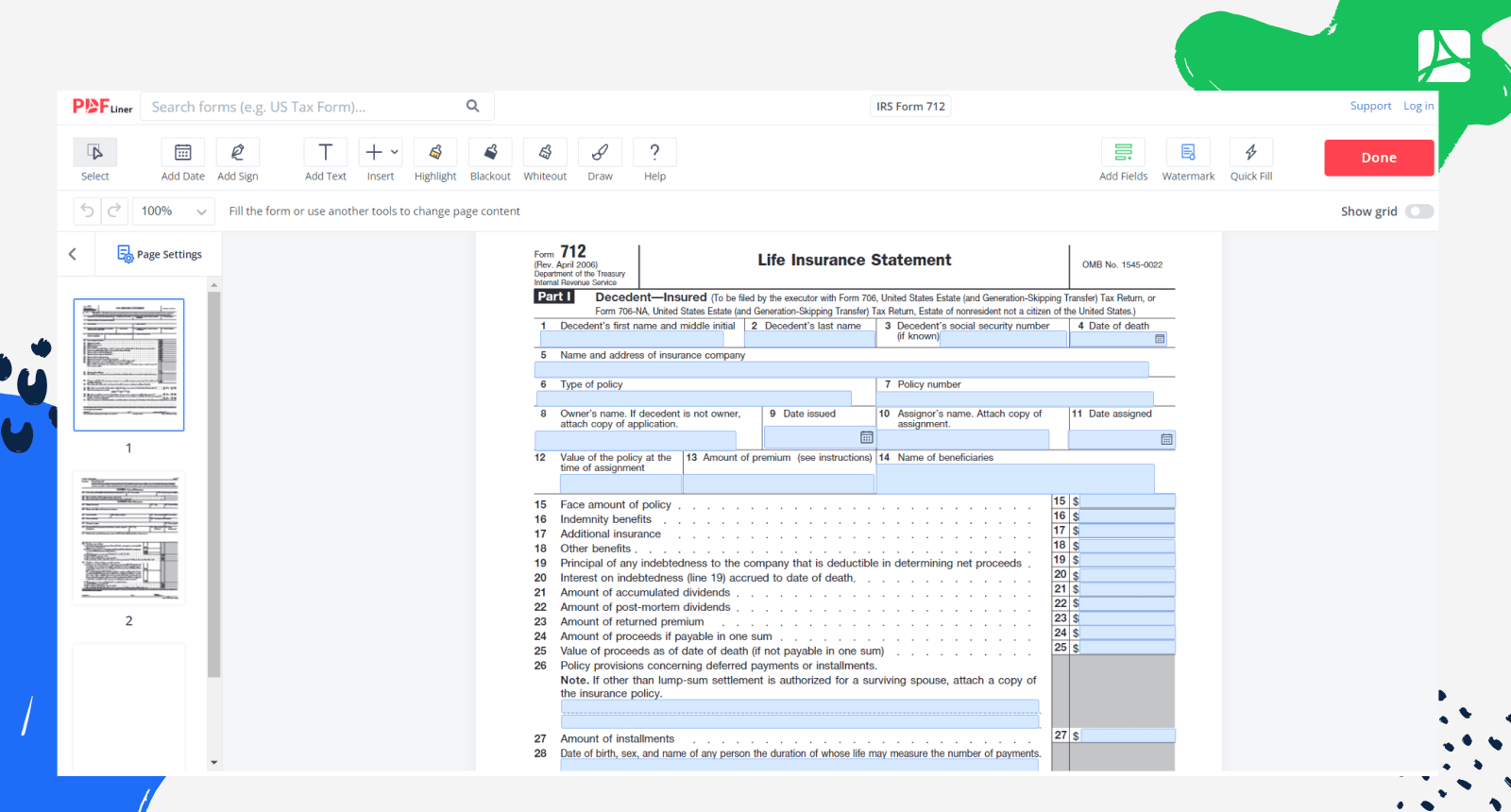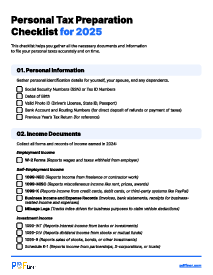-
Templates
1099 FormsAccurately report 1099 information returns and ensure IRS filing with easeExplore all templatesW-9 W-8 FormsEasily manage and share taxpayer details to streamline payments and meet IRS requirements with confidenceExplore all templatesOther Tax FormsFillable tax forms simplify and speed up your tax filing process and aid with recordkeeping.Explore all templatesReal EstateReal estate templates for all cases, from sale to rentals, save you a lot of time and effort.Explore all templatesLogisticsSimplify your trucking and logistics paperwork with our ready-to-use transportation and freight templates.Explore all templatesMedicalMedical forms help you keep patient documentation organized and secure.Explore all templatesBill of SaleBill of Sale templates streamline the transfer of ownership with clarity and protection.Explore all templatesContractsVarious contract templates ensure efficient and clear legal transactions.Explore all templatesEducationEducational forms and templates enhance the learning experience and student management.Explore all templates
-
Features
FeaturesAI-Enhanced Document Solutions for Contractor-Client Success and IRS ComplianceExplore all featuresAI Summarizer Check out the featureAI PDF summarizer makes your document workflow even faster. Ask AI to summarize PDF, assist you with tax forms, complete assignments, and more using just one tool.Sign PDF Check out the featurePDFLiner gives the opportunity to sign documents online, save them, send at once by email or print. Register now, upload your document and e-sign it onlineFill Out PDF Check out the featurePDFLiner provides different tools for filling in PDF forms. All you need is to register, upload the necessary document and start filling it out.Draw on a PDF Check out the featureDraw lines, circles, and other drawings on PDF using tools of PDFLiner online. Streamline your document editing process, speeding up your productivity
- Solutions
- Features
- Blog
- Support
- Pricing
- Log in
- Sign Up
IRS Form 712
Get your IRS Form 712 in 3 easy steps
-
01 Fill and edit template
-
02 Sign it online
-
03 Export or print immediately
What Is an IRS Form 712?
IRS Form 712 is a document used for the valuation of life insurance policies and gift tax returns. The form is also known as the Life Insurance Statement. The IRS Form 712 is used to report the value of the decedent's life insurance policy to the beneficiary, the estate, or the IRS. The form is required if the value of the policy at the time of death exceeds $1,000.
What Is Form 712 IRS Used For?
IRS Form 712, also known as the Life Insurance Statement, is used for the valuation of life insurance policies and gift tax returns. The form is used to report the value of a decedent's life insurance policy to the beneficiary, estate, or the IRS if the value of the policy at the time of death exceeds $1,000.

How To Fill Out the 712 Form IRS Online
The PDFliner website provides an easy and convenient way to fill out the IRS Form 712 online. Here is the IRS form 712 filing instructions you ought to follow:
- Go to the PDFliner website.
- Choose "IRS Form 712" from the list of available forms.
- Click "Fill this form" to open the form.
- Fill out the personal information section, which includes the name, address, and taxpayer identification number of the decedent.
- Provide the name and address of the beneficiary.
- Fill out the policy information section, which includes the name of the insurance company, policy number, and type of policy.
- Enter the date of the decedent's death and the date the policy was issued.
- Provide the policy's cash surrender value and the total amount of outstanding loans and interest.
- Calculate the value of the policy using the appropriate valuation method, such as the Interpolated Terminal Reserve or the Commissioners Reserve Valuation Method.
- The last step in IRS form 712 instructions is to provide the signature of the person completing the form and the date signed.
What Should the IRS 712 Form Include
The IRS 712 pdf form template should include the following information:
- Decedent's Information: includes the decedent's name, address, and date of death.
- Life Insurance Information: includes the insurance company's name, policy number, and the face amount of the policy.
- Retirement Account Information: includes the name of the account, account number, and the value of the account.
- Annuity Information: includes the name of the annuity, the contract number, and the value of the annuity.
- Valuation of Assets: includes the fair market value of any assets that are being reported, such as stocks, bonds, or real estate.
- Method of Valuation: includes the method used to determine the value of the assets being reported, such as an appraisal or a published valuation table.
- Beneficiary Information: includes the name and address of the beneficiary, as well as their relationship to the decedent.
- Executor Information: outline the name and address of the executor of the decedent's estate.
When Is IRS Form 712 Needed
Nowadays the IRS form 712 required in the following situations:
- Estate planning: The IRS Form 712 may be required if a person is planning to gift a life insurance policy to a beneficiary. The form can be used to calculate the gift tax owed on the policy.
- Policy surrender: If a policy is surrendered, the owner may be required to report the cash surrender value to the IRS on Form 712.
- Death benefit payout: If a policy pays out a death benefit, the beneficiary may be required to report the value of the policy on Form 712.
- Estate settlement: The executor of an estate may be required to report the value of the decedent's life insurance policy on Form 712 as part of the estate settlement process.
Fillable online IRS Form 712



































































